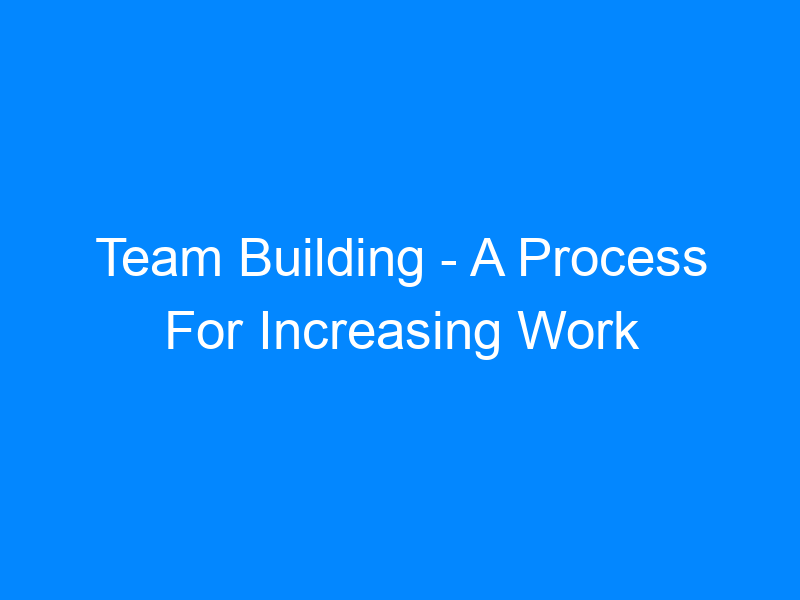Too often team building is one of those vague, misused terms managers call into play as a panacea for sluggish work unit performance. The rise in the popularity and use of team building has paralleled the growing perception of work as the output of teams of workers rather than as compartmentalized tasks on an assembly line. Field Research Findings, for example, the ones did by the American Productivity and Quality Center during their white-collar productivity improvement, multi-organizational field research efforts clearly demonstrate the importance of compelling team structures to the general performance effectiveness of the knowledge/service worker.
Too often team building is one of those vague, misused terms managers call into play as a panacea for sluggish work unit performance. The ascent in the popularity and use of team building has paralleled the growing perception of work as the output of teams of workers rather than as compartmentalized tasks on an assembly line. Field Research Findings, for example, the ones did by the American Productivity and Quality Center during their white-collar productivity improvement, multi-organizational field research efforts clearly demonstrate the importance of effective team structures to the general presentation viability of the information/service worker.
Who are the “players” in the team building process?
On the surface, a “team” suggests a group of interchangeable individuals of equal status. But, in actuality, most working teams have a supervisor or manager charged with leadership and accountability for the group’s performance. Consequently, the team leader plays an important and somewhat different role than do other members in an effective team building effort. Support from the leader is vital because if he or she does not recognize and accept the need for team building, it is impossible that different members of the work team will be very receptive to the idea.
The Value and Role of a Facilitator Coach
Notwithstanding the leader and other team members, successful team building calls for a third party participant in the process a Facilitator Coach, an expert with information and experience in the field of applied behavioral science, but who is certainly not a regular member of the team. This person may be an internal resource person in the organization or be somebody from outside the parent company/organization.
For more information click here Team building training.



